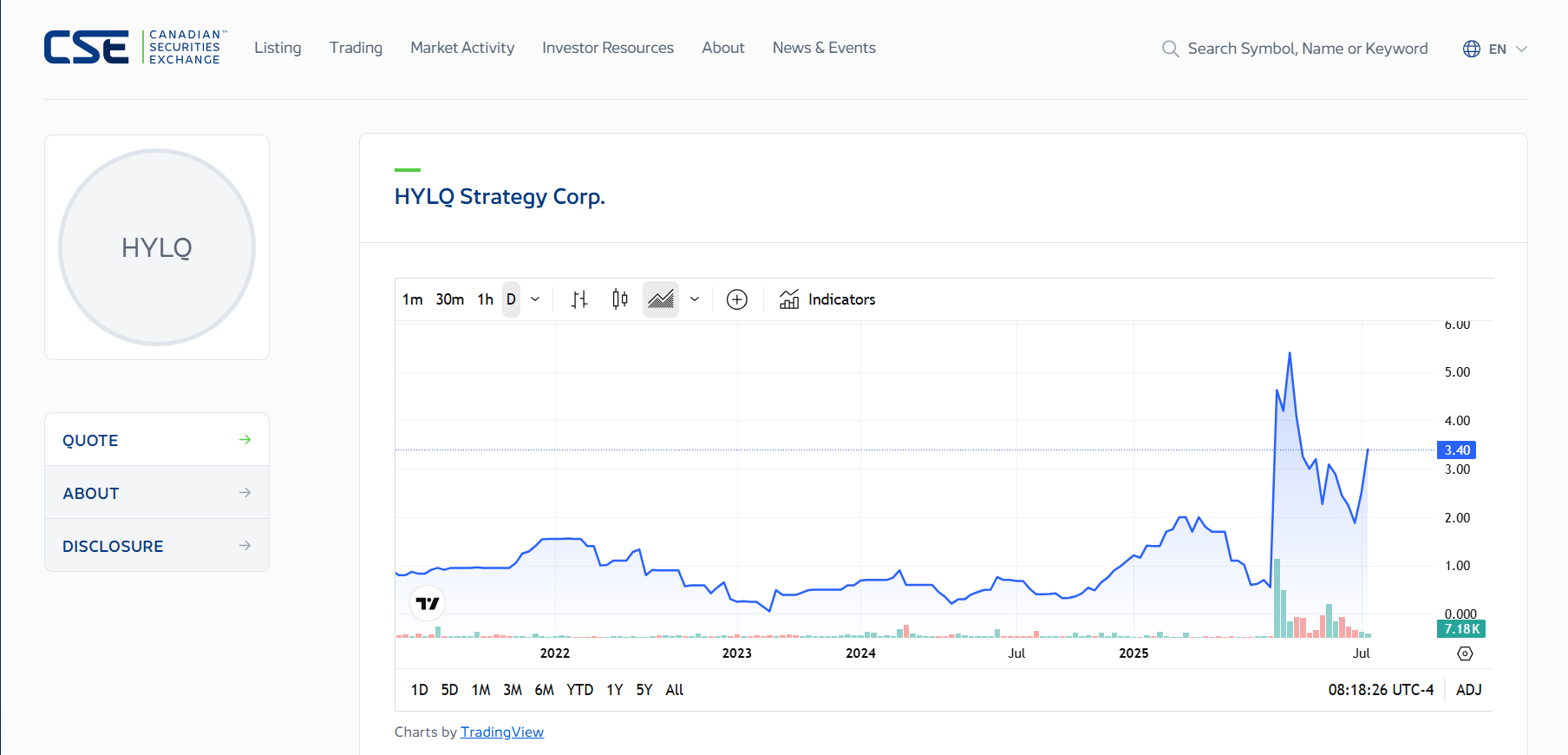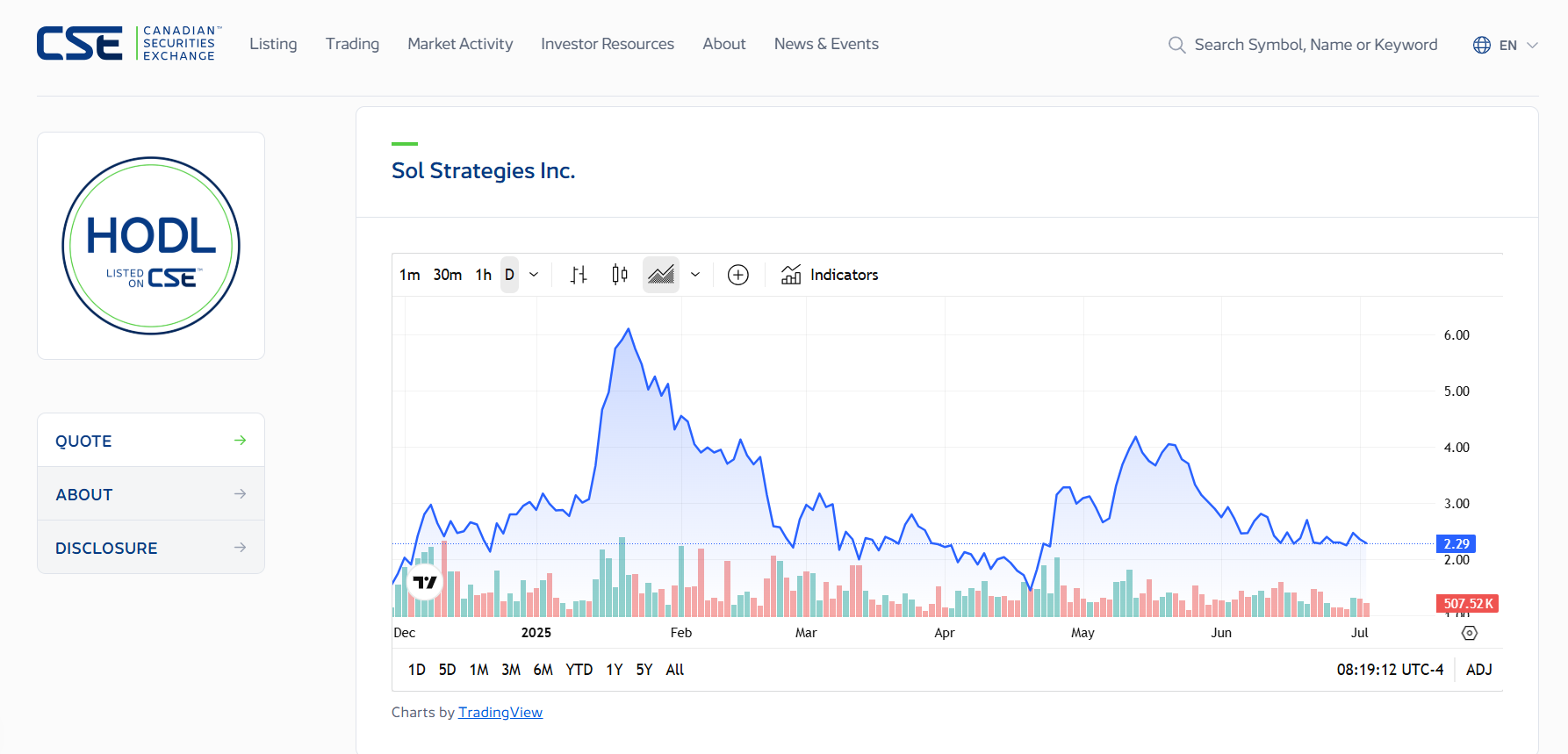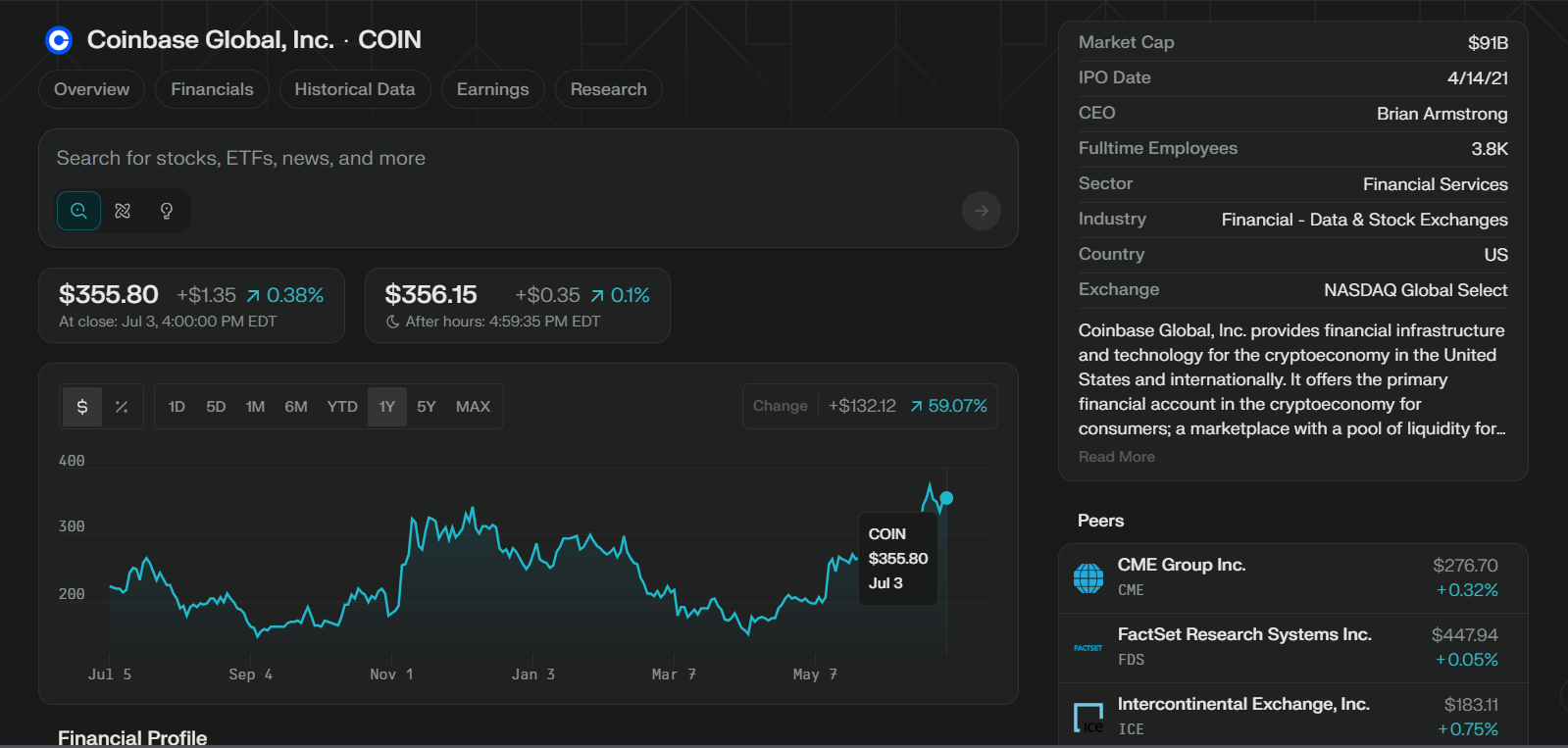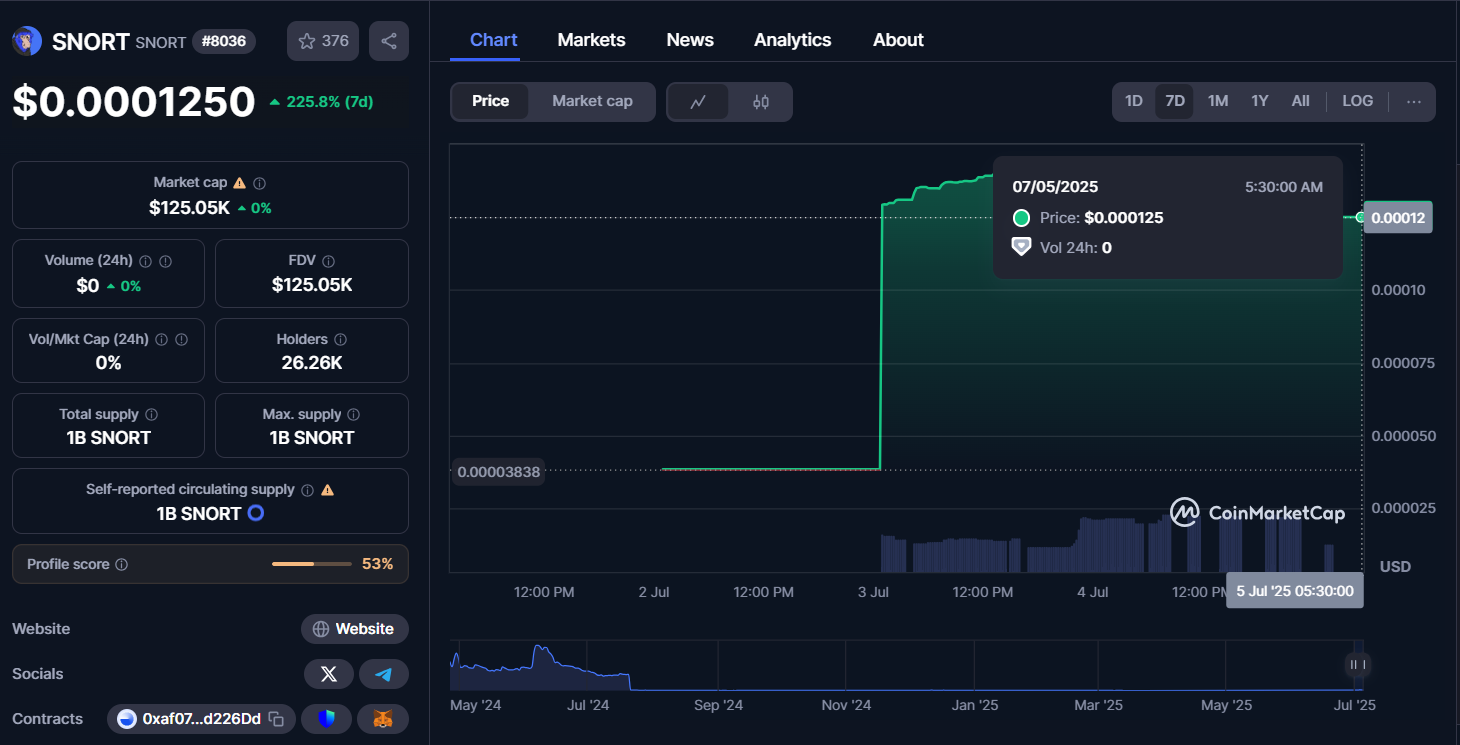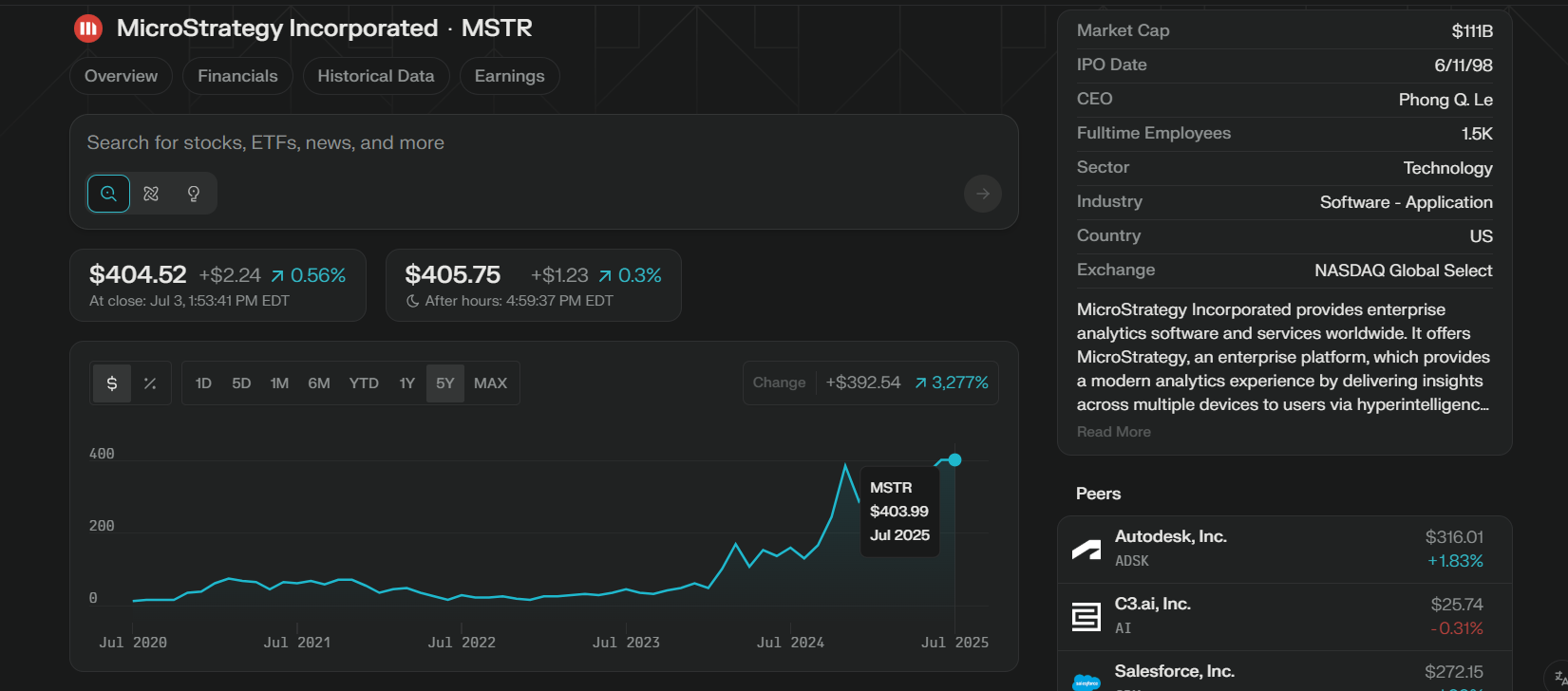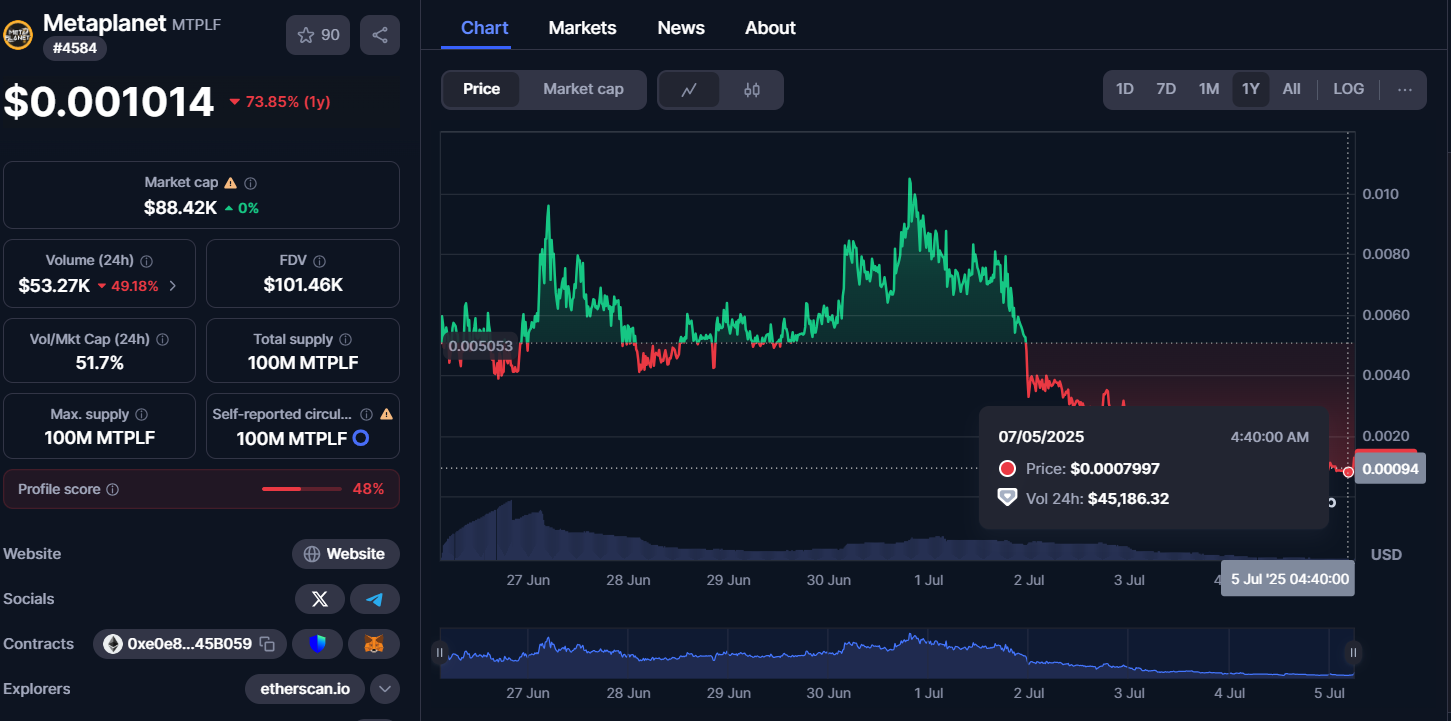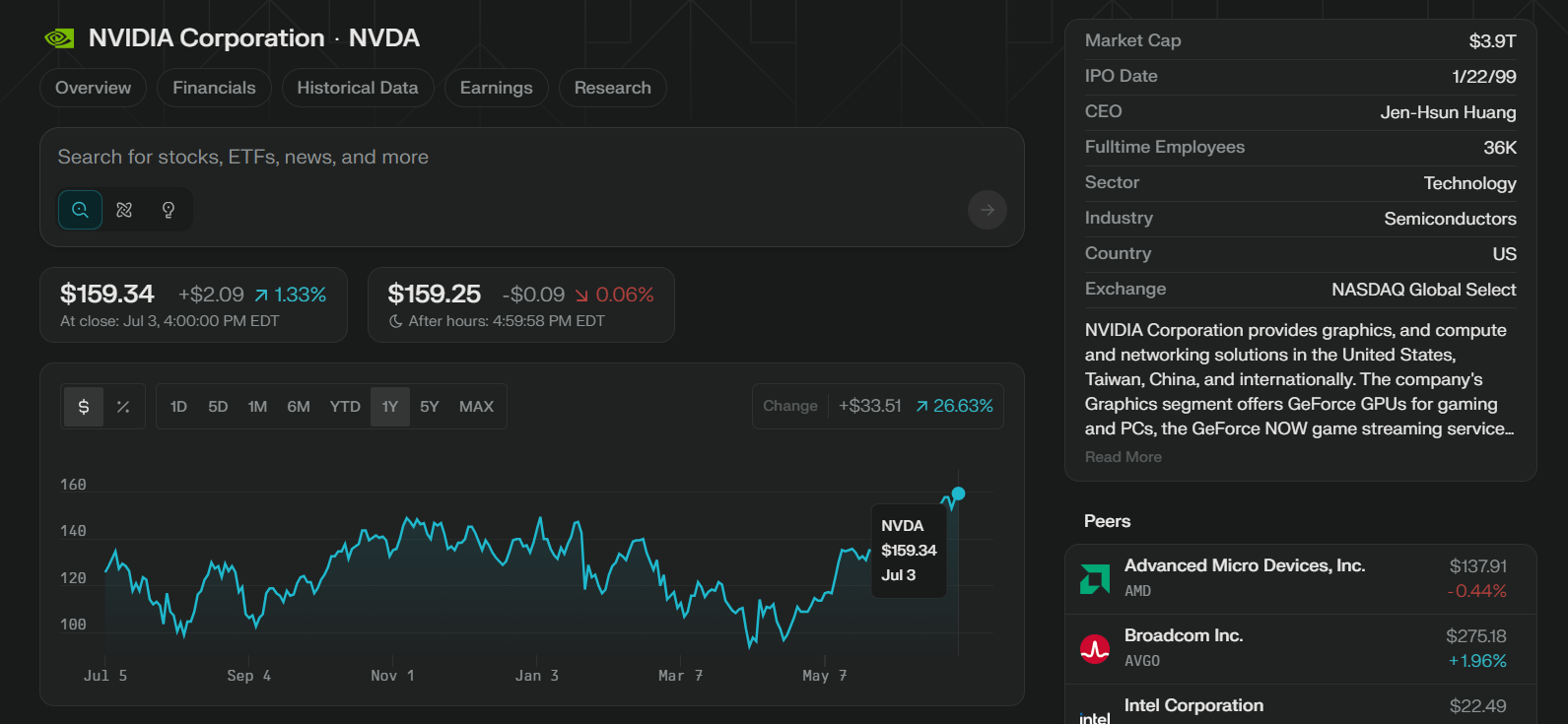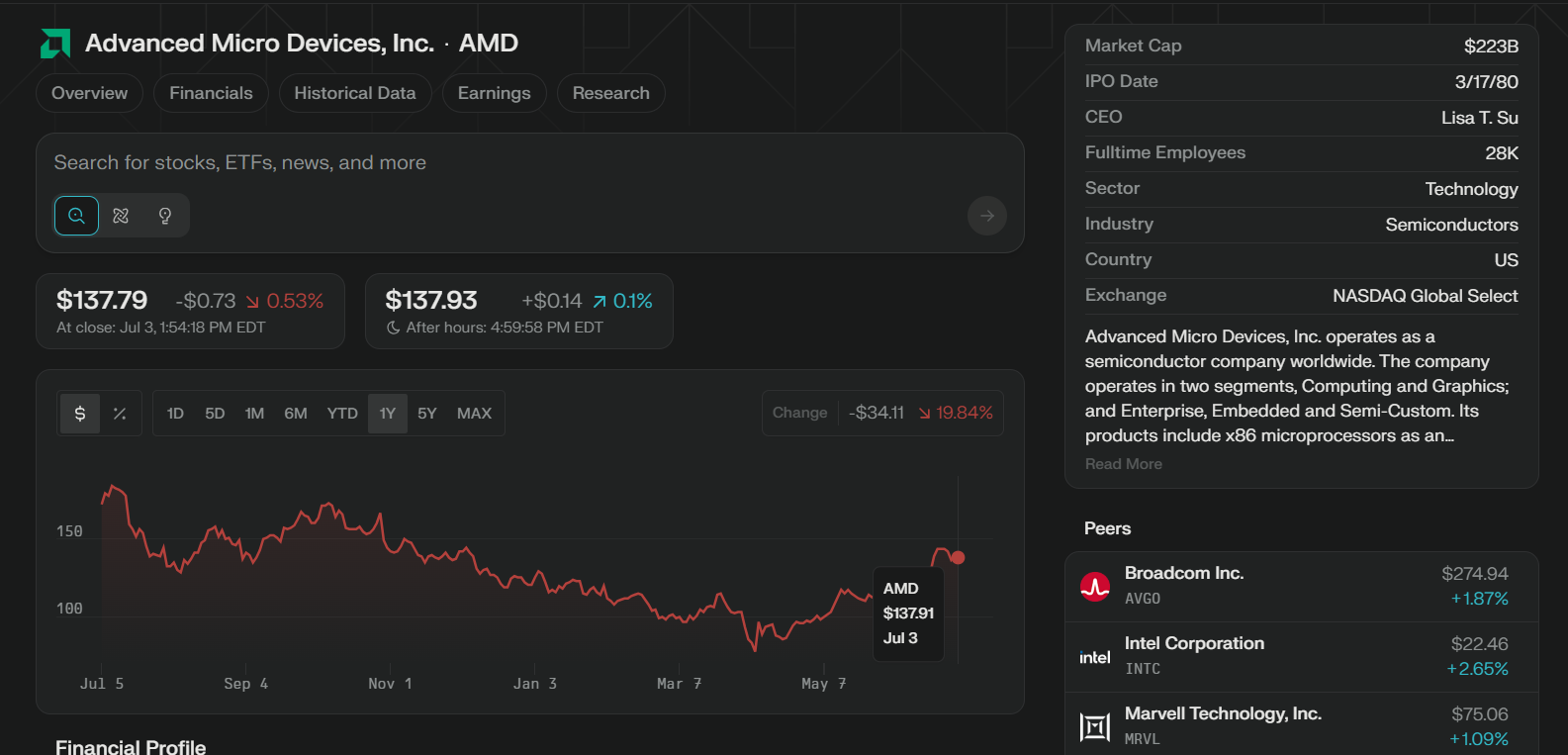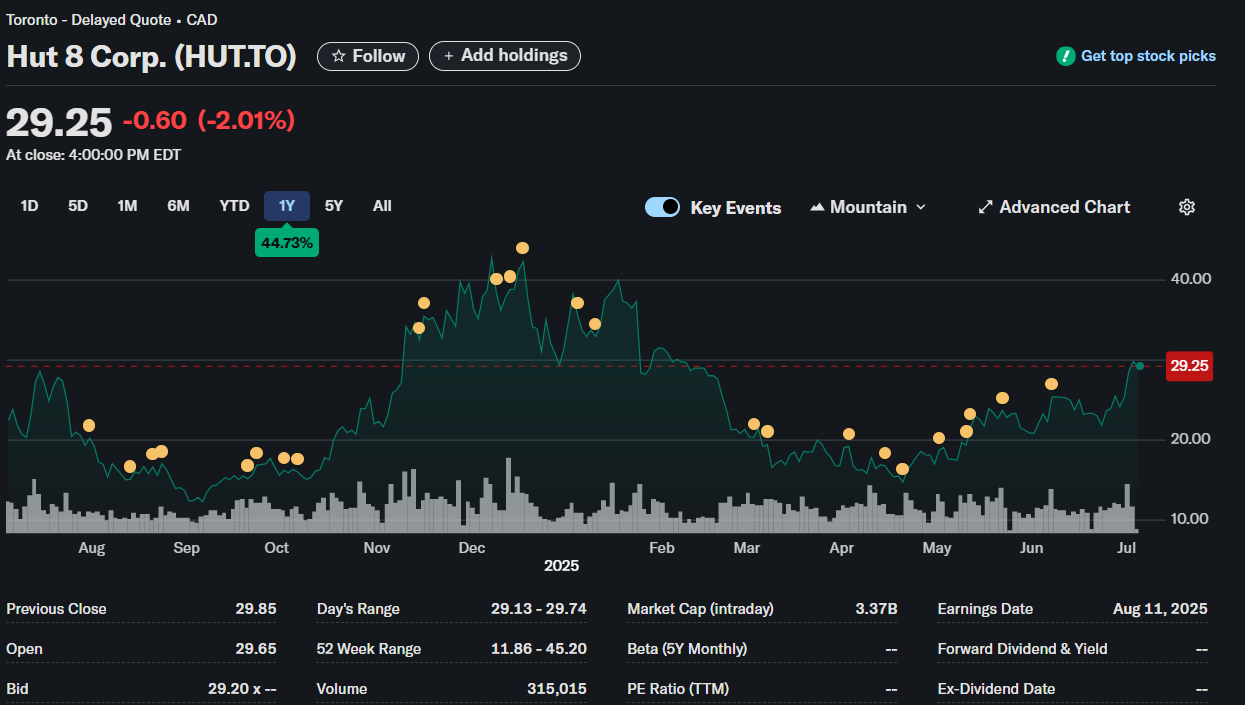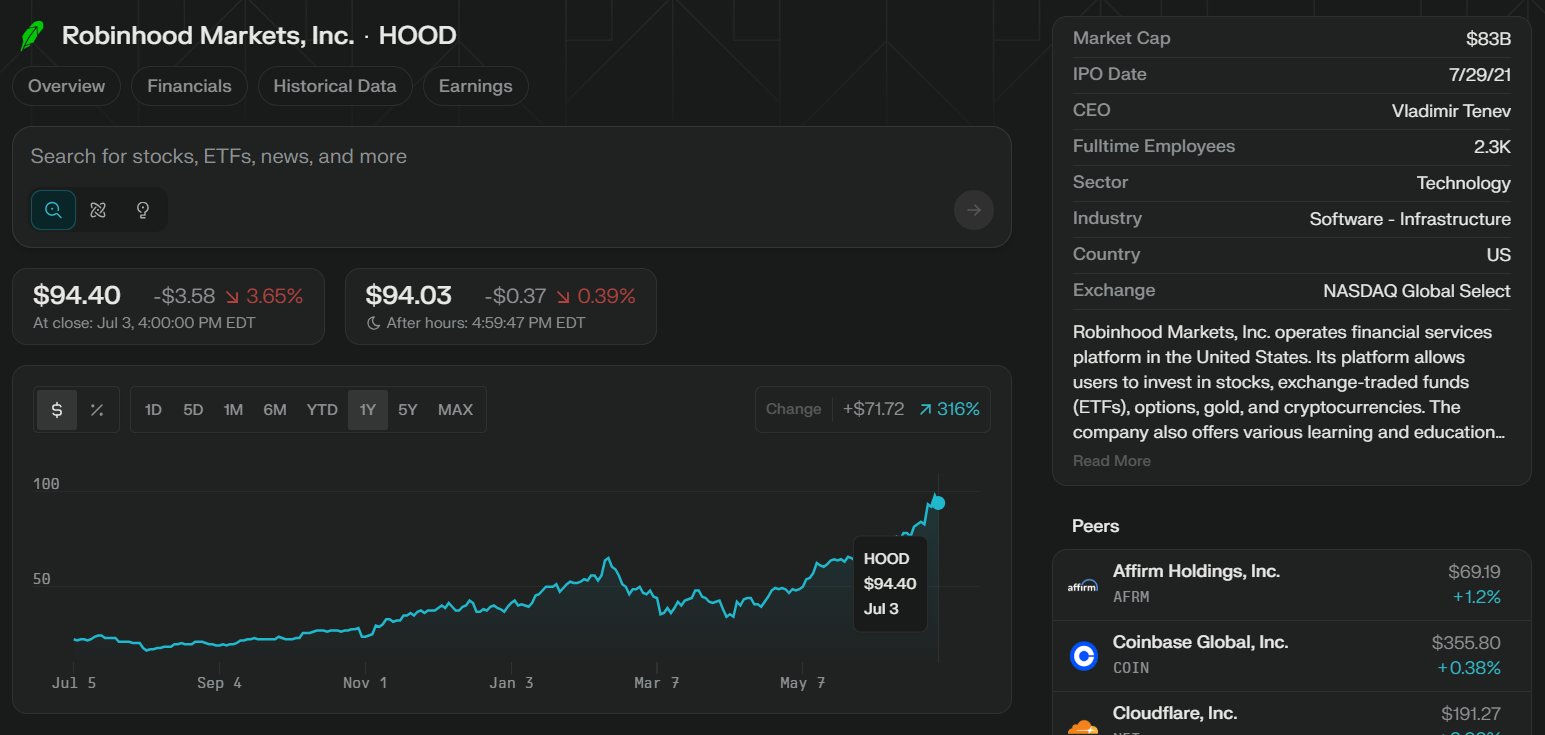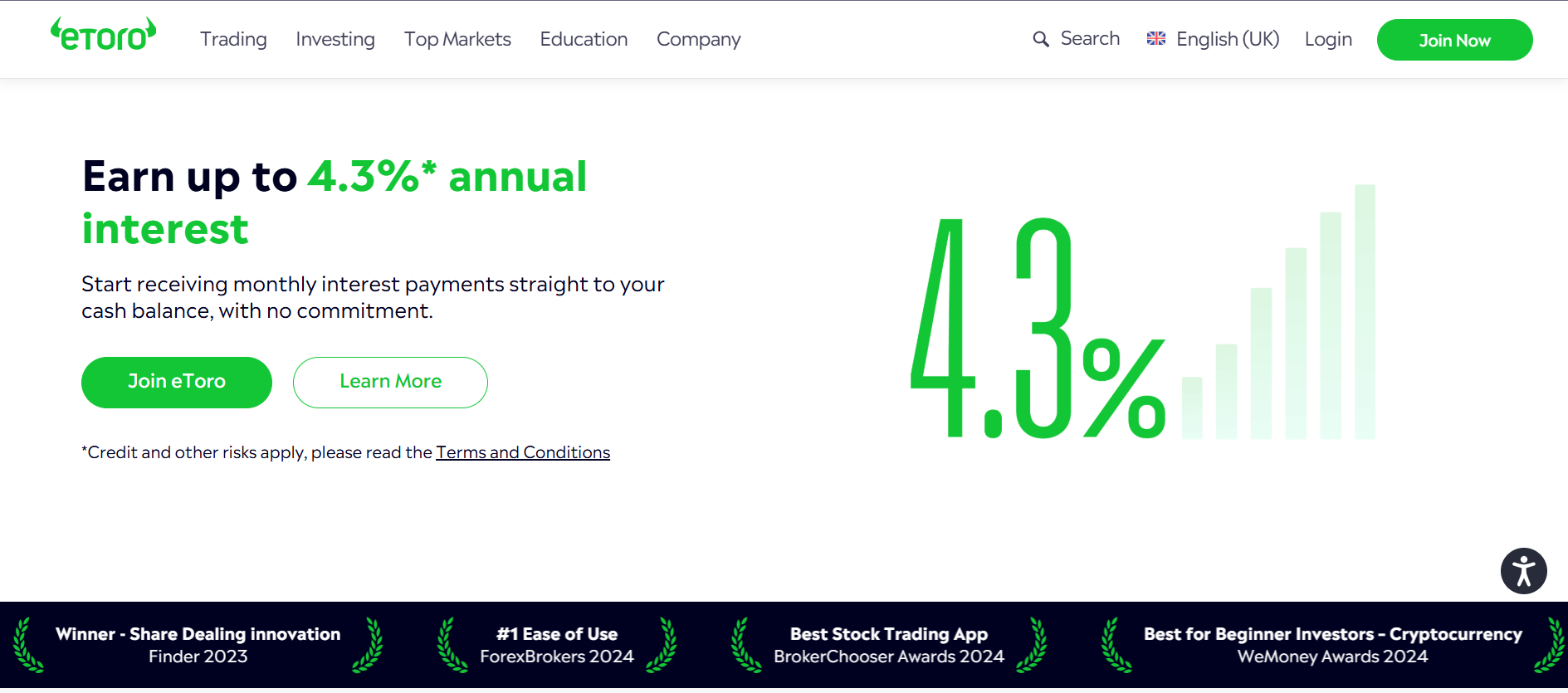Cryptocurrency stocks are gaining popularity year after year. High return potential and 24/7 tradability make them a lucrative choice for many investors. So in this article, we’re going to explore some of the best crypto stocks to buy in 2025.
Digital asset trading platforms that mine crypto, develop blockchain technology, or hold substantial cryptocurrency assets can sell crypto stocks to shareholders. Firms such as Coinbase, MicroStrategy, and Nvidia are actively involved in crypto infrastructure, mining, or related technologies. That’s why their shares are also considered crypto stocks.
-
- 1. CSE:HYLQ - Hyperliquid growth potential
- 2. CSE:HODL - Hold Crypto, Shape Future
- 3. COIN (Coinbase) - Gateway to Crypto World
- 4. Snorter - Snipe, Stake, Succeed
- 5. MicroStrategy - Bitcoin on Balance Sheet
- 6. Metaplanet - Japan’s Bitcoin powerhouse
- 7. Nvidia - Powering AI and blockchain
- 8. AMD - Accelerate digital innovation
- 9. HUT8 - Mining tomorrow’s value
- 10. Robinhood - Crypto for Every Investor
-
- 1. CSE:HYLQ - Hyperliquid growth potential
- 2. CSE:HODL - Hold Crypto, Shape Future
- 3. COIN (Coinbase) - Gateway to Crypto World
- 4. Snorter - Snipe, Stake, Succeed
- 5. MicroStrategy - Bitcoin on Balance Sheet
- 6. Metaplanet - Japan’s Bitcoin powerhouse
- 7. Nvidia - Powering AI and blockchain
- 8. AMD - Accelerate digital innovation
- 9. HUT8 - Mining tomorrow’s value
- 10. Robinhood - Crypto for Every Investor
- Show Full Guide
Here’s a list of the top 10 best crypto stocks to buy in 2025: Note: Trading values are subject to change at any time. Although we’ll only discuss the most stable parameters for the reviews, always double-check for updated data on platforms like eToro or Interactive Brokers. CSE:HYLQ is an investment holding company based in Mississauga, Canada. The firm targets sectors such as blockchain, cryptocurrency, longevity, gaming, and fintech. The company’s portfolio is also heavily weighted toward crypto and emerging technology ventures. As of early July 2025, the stock price stands at CA$3.40. The company’s market capitalization showed significant growth over the past year. CSE:HYLQ’s shares outstanding are 11.74 million, while the float is 4.69 million. You can trade a substantial portion of the company’s equity on the open market, but the percentage is below 50%. Insiders, including executives and directors, hold 12.5% of the shares, which gives you a clear view of internal ownership and management’s alignment with shareholders. You will not receive dividends from HYLQ, as the company does not pay any. The book value per share is -0.12, which reflects the company’s net asset value on a per-share basis. The price-to-book ratio is -27.32, indicating that the market values HYLQ at a significant premium to its book value; however, the negative figure also suggests a negative net asset position. The stock’s beta is -0.49. CSE stocks like HYLQ or HODL, are not tradable on eToro. We recommend using Interactive Brokers for smooth trading of CSE stocks. Follow the step-by-step guide on how to buy HYLQ on Interactive Brokers, added below.
CSE:HODL crypto stocks belong to a Canadian investment company in the cryptocurrency and blockchain sector. The firm specialises in the Solana ecosystem, allowing you to access decentralised finance, staking, and blockchain infrastructure through this stock. HODL invests in early-stage DeFi projects, operates validator nodes, and manages a portfolio that includes direct holdings of Solana (SOL) and other digital assets. The company rebranded from Cypherpunk Holdings Inc. in September 2024, which signals a strategic shift toward Solana and related technologies. As of early July 2025, the stock price traded around CA$2.29. CSE:HODL’s shares outstanding are 166.03 million, and you can trade a significant portion of these as the float is 130.15 million. Insiders, including executives and directors, hold 21.61% of the shares, which gives you a clear picture of internal ownership and management’s alignment with shareholders. Institutional investors account for a very small share, with 0.38% of the stock. You will not receive dividends from HODL, as the company does not distribute any. The book value per share is $0.53, which reflects the net asset value on a per-share basis. The price-to-book ratio is 4.61, so the market values HODL at more than four times its book value. The stock’s beta is 3.13, which means you can expect price movements that are over three times as volatile as the broader market.
Coinbase was founded in 2012 and became the first major cryptocurrency exchange to go public in the United States. The company’s business model is built on transaction fees from spot and derivatives trading, blockchain infrastructure services, and institutional custody solutions. Coinbase operates under a compliance-first approach, holding multiple state and federal licenses, which sets a benchmark for regulatory adherence in the crypto industry. The platform supports over 240 digital assets and serves more than 100 countries, making it one of the most globally accessible crypto exchanges. The company’s dual-class share structure grants founders and early investors enhanced voting rights, which is a notable governance feature for long-term shareholders. Coinbase generates most of its revenue from transaction fees, which means its financial performance closely tracks trading activity and overall market sentiment in the crypto sector. On early July 2025, the stock price stood at $355.80 per share. Coinbase maintains 253.88 million shares outstanding, with a public float nearly identical to this figure, allowing broad market participation. Insider ownership is 15.6%, while institutional investors control 49.2% of the equity, placing Coinbase among the most institutionally held crypto companies. The book value per share is $41.12, and the price-to-book ratio is 8.68. Coinbase’s beta is 2.35, which ranks among the highest in the fintech and crypto exchange sector. It also points to substantial price sensitivity to market trends. The company does not pay dividends. Additionally, over the past year, the stock has experienced significant market volatility, a common occurrence for companies closely tied to digital asset markets.
Snorter Token ($SNORT) is the core asset behind Snorter Bot, a Telegram-native trading platform. It has a primary focus on meme coins and automated crypto trading. The project targets the fast-growing market for trading bots and leverages the Solana blockchain for high-speed execution. Additionally, the token’s utility includes discounted trading fees, staking rewards, and access to advanced trading features within the Snorter Bot. Snorter Token has a total circulating supply of 500 million tokens, with a maximum supply capped at the same level. You can trade SNORT across multiple blockchains, as it is available as both an SPL token on Solana and an ERC-20 token on Ethereum, supporting cross-chain compatibility. The token allocation is transparent: 25% is dedicated to product development, 20% each to marketing and exchange liquidity, 10% each to community rewards, airdrops, and treasury, and 5% to staking rewards. Insider and team ownership is governed by a dual-class structure, granting founders and early investors enhanced voting rights for major protocol decisions. SNORT holders will participate in DAO governance, voting on upgrades and feature rollouts. The token’s business model centers on providing access to premium features in the Snorter Bot ecosystem, such as reduced trading fees, advanced trading tools, and exclusive competitions. Security is a core focus, with audits completed by SolidProof and Coinsult and no critical vulnerabilities reported. There is no inflation risk, as the total supply is capped and no additional tokens will be minted in the future. Snorter’s annual percentage yield (APY) is up to 1,700% for early participants. You can buy Snorter token here.
MicroStrategy maintains 256.47 million shares outstanding, with a public float of 253.58 million, so nearly all shares are available for trading. Insider ownership is 7.2%, while institutional investors hold about 44.9% of the equity, reflecting a balance between internal and external stakeholders. The book value per share is $121.05, and the price-to-book ratio is 3.34, so the market values MicroStrategy at just over three times its book value.The company’s beta is 1.12, which means you can expect price movements slightly more volatile than the broader market. MicroStrategy does not pay dividends. The company operates a dual-class share structure, granting founders and early investors enhanced voting rights. MicroStrategy is the world’s largest publicly traded corporate holder of Bitcoin, with 553,555 BTC as of April 2025. The firm’s business model centers on leveraging its balance sheet to acquire and hold Bitcoin, transforming it into a proxy for direct Bitcoin exposure. Its Bitcoin-per-share (BPS) metric is a unique benchmark, currently estimated at 3.9–4.1 BTC per 1,000 shares. The company funds its Bitcoin strategy through a mix of low-cost convertible debt and equity issuance, which has amplified both its returns and risk profile. MicroStrategy’s inclusion in major indices, such as the Nasdaq-100, and the launch of leveraged ETFs tied to its stock have further increased its relevance for crypto-focused investors. Founded in 1989, MicroStrategy originally specialized in business intelligence software but now operates as a hybrid technology and Bitcoin treasury company. This structure and business model provide you with a stable, technical foundation for understanding MicroStrategy as a crypto stock.
Metaplanet Inc. is a Tokyo-listed company that went from a hotel operator to become one of Asia’s largest corporate holders of Bitcoin. You gain exposure to the digital asset market through this stock because Metaplanet’s business model centers on acquiring and holding Bitcoin as a treasury asset. As a result, the company’s share price often tracks Bitcoin’s performance and the broader sentiment of the crypto market. Metaplanet is a Japanese public company specializing in Bitcoin treasury management and hotel operations. The company maintains 654.71 million shares outstanding, with a free float of 545.88 million, allowing for the trading of a substantial portion of its equity on the open market. Insider ownership is approximately 18%, indicating a notable internal stake, while the free-float percentage is about 76.2%. The book value per share is ¥1.25 (approximate USD equivalent may vary), and the price-to-book ratio is 20.1. Metaplanet does not pay dividends. The stock’s beta is 1.0, so you can expect price movements that closely track the broader market. Metaplanet holds 13,350 BTC as of July 2025, making it the largest Bitcoin holder among Japanese public companies and one of the top five globally. The company’s business model centers on generating income through Bitcoin options strategies and accumulating BTC on its balance sheet. ✅ Largest corporate Bitcoin holder in Asia (13,350+ BTC) ✅ Zero-interest bond financing enables aggressive BTC accumulation ✅ Direct, tax-advantaged Bitcoin exposure for Japanese investors ✅ Strong retail and institutional demand, with 500%+ increase in shareholders ✅ Innovative “BTC yield” strategy (option premiums boost revenue) ✅ Ambitious plan to acquire 210,000 BTC by 2027 ✅ MSCI Japan Index inclusion and growing market influence ❌ Net asset value (NAV) premium may compress if BTC price falls or capital raises outpace asset growth ❌ Business model almost entirely dependent on Bitcoin market performance ❌ Thin institutional base compared to global peers (e.g., MicroStrategy) ❌ Regulatory and compliance risks in Japan and abroad Nvidia’s presence in the crypto stock landscape is primarily through tokenized representations of its equity and its critical role in blockchain infrastructure. Several platforms offer tokenized Nvidia stocks, such as NVDA on FTX and Defichain, allowing you to gain exposure to Nvidia’s value using blockchain technology. The circulating supply for the Defichain version (DNVDA) is 121,746 tokens, and the total supply matches this figure. The max supply is uncapped, but currently, all tokens are in circulation. For the FTX tokenized version, the supply data is not consistently reported, but the tokens are designed to mirror the underlying NVDA shares. Nvidia does not directly issue a native cryptocurrency or operate a blockchain protocol. Instead, its business model in the crypto sector centers on providing high-performance GPUs that are essential for mining, AI computation, and blockchain validation. The company’s hardware underpins much of the infrastructure for both crypto mining and AI-driven blockchain applications. Nvidia maintains a dual-class share structure for its traditional equity, granting founders and early investors enhanced voting rights. Insider ownership for Nvidia is around 3.5%, while institutional investors control a significant portion of the equity, reflecting strong external confidence. The book value per share is $3.44, and the price-to-book ratio is 46.35, placing Nvidia among the highest-valued tech companies relative to its net assets. The beta is 1.75, so you can expect Nvidia’s price movements to be more volatile than the broader market.
AMD’s shares outstanding are 1.62 billion, and the public float is 1.61 billion, giving you access to nearly all shares on the open market. Insider ownership is about 0.45%, while institutional investors hold a significant portion, reflecting strong external confidence in the company. The book value per share is $18.12, and the price-to-book ratio is 7.5, placing AMD among the higher-valued semiconductor firms relative to its net assets. AMD does not pay dividends. The stock’s beta is 2.09, so you can expect price movements that are more than twice as volatile as the broader market. AMD’s business model in the crypto sector is built around supplying high-performance GPUs and hardware accelerators used for mining altcoins, supporting blockchain infrastructure, and powering decentralized storage networks. The company collaborates with Web3 leaders to drive decentralized storage and blockchain interoperability. AMD’s Radeon RX series GPUs remain popular for crypto mining due to their energy efficiency and strong hash rates. The company also participates in blockchain development by optimizing its hardware and software for distributed computing and zero-knowledge cryptography.
Best Crypto Stocks – List
Best Crypto Stocks to Buy Now – Detailed Review
1. CSE:HYLQ – Hyperliquid growth potential
CSE:HYLQ Stats
🏷️ Parameter
📊 Value / Description
🧮 Shares Outstanding
11.74 million
🌐 Public Float
4.67 million
👥 Insider Ownership
12.5%
🏦 Institutional Ownership
17.2%
📖 Book Value Per Share
-0.12
🚫 Dividend Policy
None
📊 Beta (5Y)
-0.49
💹 Price-to-Book Ratio
-27.3
🗳️ Voting Rights Structure
Single class, standard voting rights
🏢 Business Model
Investment holding company
🗓️ Founding Date
2018
CSE:HYLQ Pros and Cons
Pros ✅
Cons ❌
✅ 230%+ stock price growth in the past year
✅ Direct exposure to Hyperliquid ($HYPE) token upside
✅ Recent profitable quarter (Q1 2025 net income: CAD 0.59M)
✅ Early access to new crypto projects and preferential allocations
✅ Potential for NASDAQ uplisting
✅ Small market cap allows for high growth potential
✅ Executive insider buying signals confidence❌ Highly volatile price swings (67%+ volatility)
❌ No dividend payments
❌ Negative trailing 12-month revenue and net income
❌ Balance sheet exposed to crypto market downturns
❌ Regulatory and stablecoin risks2. CSE:HODL – Hold Crypto, Shape Future
CSE:HODL Stats
🏷️ Parameter
🧮 Shares Outstanding
166.03 million
🌐 Public Float
91.64 million
👥 Insider Ownership
24.80%
🏦 Institutional Ownership
0.40%
📖 Book Value Per Share
0.53
🚫 Dividend Policy
None
📊 Beta (5Y)
1.77
💹 Price-to-Book Ratio
4.61
🗳️ Voting Rights Structure
🏢 Business Model
🗓️ Founding Date
2017
CSE:HODL Pros and Cons
Pros ✅
Cons ❌
✅ 1,775%+ stock price growth in the past year
✅ Direct exposure to Solana (SOL) upside
✅ Successful launch of institutional-grade staking and validator operations
✅ Expanding through acquisitions, partnerships, and proprietary tech
✅ Small-cap valuation allows for high growth potential
✅ Strategic positioning for institutional adoption in Solana ecosystem❌ Highly volatile price swings and thin trading volume
❌ No dividend payment
❌ Revenue dropped 55% quarter-over-quarter
❌ Overvalued fundamentals (PE ratio 71)3. COIN (Coinbase) – Gateway to Crypto World
Coinbase Stats
🏷️ Parameter
📊 Value
🧮 Shares Outstanding
253.88 million
🌐 Float
208.49 million
👥 Insider Ownership
15.60%
🚫 Dividend Yield
None
📖 Book Value/Share
$41.12
📊 Beta (5Y)
2.35
💹 Price-to-Book Ratio
8.68
Coinbase Pros and Cons
Pros ✅
Cons ❌
✅ Best-performing S&P 500 stock in June 2025
✅ 24% YoY revenue growth in Q1 2025
✅ Leading US-regulated crypto exchange with strong brand recognition
✅ Over 250 cryptocurrencies and 350+ trading pairs
✅ Expanding subscription and services revenue (up 36% YoY)
✅ Advanced trading platform and robust security features
✅ Institutional adoption and S&P 500 inclusion❌ High trading and transaction fees
❌ Recent data breach affecting <1% of users
❌ Ongoing SEC and regulatory scrutiny
❌ Highly volatile, cyclical business tied to crypto markets
❌ Intense competition from other exchanges and fintechs4. Snorter – Snipe, Stake, Succeed
Snorter Stats
🏷️ Parameter
🧮 Shares Outstanding
🌐 Public Float
👥 Insider Ownership
🏦 Institutional Ownership
📖 Book Value Per Share
🚫 Dividend Policy
None
📊 Beta (5Y)
💹 Price-to-Book Ratio
Not applicable
🗳️ Voting Rights Structure
🏢 Business Model
🗓️ Founding Date
2024
Snorter Pros and Cons
Pros ✅
Cons ❌
✅ Ultra-low trading fees for holders (0.85%)
✅ Fast, Solana-native trading bot with Telegram integration
✅ MEV protection and scam/rugpull detection
✅ High staking APY (up to 530%) and passive income potential
✅ Security audits completed by SolidProof and Coinsult
✅ Multi-chain roadmap (Solana, Ethereum, BNB Chain)❌ Anonymous team and limited transparency
❌ Extremely high volatility and price risk
❌ Staking APYs likely unsustainable long-term
❌ Security audits did not cover all contracts
❌ Meme coin status increases risk of hype-driven swings5. MicroStrategy – Bitcoin on Balance Sheet
MicroStrategy Stats
🏷️ Parameter
📊 Value
🧮 Shares Outstanding
259.7 million
🌐 Float
253.58 million
👥 Insider Ownership
0.19%
🚫 Dividend Yield
None
📖 Book Value/Share
$121.05
📊 Beta (5Y)
3.76
💹 Price-to-Book Ratio
3.34
MicroStrategy Pros and Cons
Pros ✅
Cons ❌
✅ 222%+ stock price growth in the past year
✅ World’s largest corporate Bitcoin holder (553,000+ BTC)
✅ Direct, regulated equity exposure to Bitcoin upside
✅ Consistent, high-conviction Bitcoin acquisition strategy
✅ Cloud subscription revenue up 62% YoY
✅ Institutional demand for crypto exposure via equity
✅ Broad price target range ($175–$650) reflects upside potential❌ Heavy reliance on Bitcoin for asset valuation
❌ Ongoing shareholder dilution from equity and debt raises
❌ Core software revenue down 3.6% YoY
❌ High debt load ($8.2B+) from Bitcoin purchases6. Metaplanet – Japan’s Bitcoin powerhouse
Metaplanet Stats
🏷️ Parameter
🧮 Shares Outstanding
654.71 million
🌐 Public Float
545.88 million
👥 Insider Ownership
🏦 Institutional Ownership
18.00%
📖 Book Value Per Share
🚫 Dividend Policy
📊 Beta (5Y)
1.08
💹 Price-to-Book Ratio
12.8
🗳️ Voting Rights Structure
🏢 Business Model
🗓️ Founding Date
Metaplanet Pros and Cons
Pros ✅
Cons ❌
✅ 4,800%+ stock price growth in 2024
❌ Frequent equity and bond issuances risk significant shareholder dilution
7. Nvidia – Powering AI and blockchain
Nvidia Stats
🏷️ Parameter
📊 Value
🧮 Shares Outstanding
24.61 billion
🌐 Float
~24.40 billion
👥 Insider Ownership
3.5%
🚫 Dividend Yield
0.03%
📖 Book Value/Share
$3.44
📊 Beta (5Y)
1.75
💹 Price-to-Book Ratio
46.35
Nvidia Pros and Cons
Pros ✅
Cons ❌
✅ Dominant market share in AI/data center chips
✅ Robust demand for Blackwell AI and data center products
✅ Expanding into automotive AI and new verticals
✅ $37.6B cash reserve and strong financial health
✅ Aggressive R&D and capital investment for future growth
✅ Broad analyst consensus: “Strong Buy” with 12–15% upside targets❌ Highly volatile price swings and valuation concerns (45–50× forward earnings)
❌ Significant exposure to U.S.–China trade restrictions and export bans
❌ $8–9B annual revenue at risk from China market limitations
❌ Competition from custom silicon (AWS, Google, Huawei)8. AMD – Accelerate digital innovation
AMD Stats
🏷️ Parameter
📊 Value
🧮 Shares Outstanding
1.62 billion
🌐 Float
1.61 billion
👥 Insider Ownership
0.45%
🚫 Dividend Yield
None (0.00%)
📖 Book Value/Share
$35.81
📊 Beta (5Y)
2.04
💹 Price-to-Book Ratio
3.86
AMD Pros and Cons
Pros ✅
Cons ❌
✅ Surging data center and AI chip demand
✅ Gaining market share from Intel and Nvidia
✅ Robust product innovation pipeline (new CPUs/GPUs)
✅ Strategic acquisitions (e.g., ZT Systems) expanding AI/data center reach
✅ Strong leadership and operational execution
✅ Broad analyst consensus for further upside
✅ High liquidity and strong institutional interest❌ Temporary margin impact from new export controls
❌ Revenue loss from China chip restrictions ($1.5B impact)
❌ Market share gains not guaranteed against Nvidia/Intel
9. HUT8 – Mining tomorrow’s value
Hut 8 maintains 115.22 million shares outstanding, with a public float of 38.65 million, so you can a good percentage of shares on the open market. Insider ownership is 9.61%, while institutional investors hold 46.82% of the equity, showing a balanced mix of internal and external stakeholders.
The book value per share is $9.22, and the price-to-book ratio is 1.84, placing Hut 8 in the mid-range for crypto mining firms relative to its net assets. The stock’s beta is 3.09, which means you can expect price movements that are more than three times as volatile as the broader market. Hut 8 does not pay dividends.
Founded in 2017, Hut 8 is one of North America’s largest and most established Bitcoin miners. The company’s business model centers on large-scale Bitcoin mining, high-performance computing infrastructure, and renewable energy integration.
Hut 8 operates eleven mining and data center facilities across Canada, with a mix of hydro and nuclear power for efficiency and sustainability. The company’s dual-class share structure grants founders and early investors enhanced voting rights, which is a notable governance feature for long-term shareholders.
HUT8 Stats
| 🏷️ Parameter |
📊 Value / Description
|
| 🧮 Shares Outstanding | 115.22 million |
| 🌐 Public Float | 38.65 million |
| 👥 Insider Ownership | 9.61% |
| 🏦 Institutional Ownership | 46.82% |
| 📖 Book Value Per Share |
$9.22 (as of March 2025)
|
| 🚫 Dividend Policy |
None (no dividends paid)
|
| 📊 Beta (5Y) | 3.09 |
| 💹 Price-to-Book Ratio | 1.84 |
| 🗳️ Voting Rights Structure |
Single class, standard voting rights
|
| 🏢 Business Model |
Bitcoin mining, GPU-as-a-Service, AI/cloud data centers, digital infrastructure
|
| 🗓️ Founding Date | 2017 |
HUT8 Pros and Cons
| Pros ✅ | Cons ❌ |
|---|---|
| ✅ 79% hashrate increase and 37% fleet efficiency improvement after major ASIC upgrade ✅ Strategic launch of American Bitcoin subsidiary for focused mining operations ✅ 1,020 MW energy capacity under management and 10,800 MW development pipeline ✅ Diversification into energy infrastructure and high-performance computing ✅ Secured five-year, investment-grade power contracts for stable cash flows ✅ Analyst “Buy” ratings and margin improvement potential |
❌ High operational and energy costs impacting profitability ❌ Stock price volatility and underperformance vs. peers ❌ Frequent equity raises risk shareholder dilution ❌ Business model susceptible to Bitcoin price swings |
10. Robinhood – Crypto for Every Investor
Robinhood maintains 886 million shares outstanding, with a public float estimated at over 80% of this figure, so you can access most shares on the open market. Insider ownership stands at approximately 7.5%, while institutional investors control about 60% of the equity, reflecting strong external confidence in the company.
The book value per share is $8.14, and the price-to-book ratio is 4.6, placing Robinhood in the mid-range for fintech and brokerage firms relative to net assets. Robinhood does not pay dividends. The stock’s beta is 1.28, so you can expect price movements that are somewhat more volatile than the broader market.
Robinhood’s business model is built on commission-free trading of stocks, ETFs, options, and cryptocurrencies. In 2025, the company launched tokenized U.S. stocks and ETFs for EU customers, allowing 24/5 trading through blockchain-based tokens. These tokens are issued on the Arbitrum Layer 2 blockchain and will soon migrate to Robinhood’s own Layer 2 network.
Each token is fully backed 1:1 by underlying shares, and users can receive dividends directly in-app. Robinhood’s crypto expansion also includes perpetual futures and staking services for European users, and the company recently acquired Bitstamp to deepen its global crypto reach.
Founded in 2013, Robinhood is recognized for its dual-class share structure, which grants enhanced voting rights to founders and early investors. The company’s platform serves over 25.8 million funded customers and manages $221 billion in assets under custody.
Robinhood Stats
| 🏷️ Parameter |
📊 Value / Description
|
| 🧮 Shares Outstanding |
886 million (Robinhood Markets, Inc.)
|
| 🌐 Public Float | 758.23 million |
| 👥 Insider Ownership | 7.50% |
| 🏦 Institutional Ownership | 60% |
| 📖 Book Value Per Share |
$8.14 (as of March 2025)
|
| 🚫 Dividend Policy |
No dividends paid on tokenized stocks; dividends accrue to holders
|
| 📊 Beta (5Y) | 1.28 |
| 💹 Price-to-Book Ratio | 4.6 |
| 🗳️ Voting Rights Structure |
No voting rights for token holders; Robinhood owns underlying shares
|
| 🏢 Business Model |
Brokerage, crypto trading, tokenized stocks, financial services
|
| 🗓️ Founding Date | 2013 |
Robinhood Pros and Cons
| Pros ✅ | Cons ❌ |
|---|---|
| ✅ Commission-free trading for stocks, ETFs, options, and 30+ cryptocurrencies ✅ User-friendly interface and seamless integration of stocks and crypto ✅ Expansion into tokenized stocks, perpetual futures, and crypto staking ✅ Advanced trading tools (Robinhood Legend, AI assistant, prediction markets) ✅ Robust security measures and insurance protection ✅ Broad analyst “Buy” consensus and high projected EPS growth |
❌ Revenue and sentiment highly sensitive to crypto market cycles ❌ Past data breaches and security incidents ❌ No direct wallet custody for all assets; some withdrawals restricted ❌ Stock price volatility and premium valuation flagged by analysts |
What Are Crypto Stocks?
Crypto stocks are shares of publicly traded companies that have significant involvement in the cryptocurrency sector. Access digital assets, blockchain technology, or crypto trading platforms by investing in these stocks.
Companies in this category may operate crypto exchanges, mine digital currencies, develop blockchain infrastructure, or hold large amounts of cryptocurrencies on their balance sheets.
Coinbase, MicroStrategy, and Nvidia are some of the models that closely track trends in the digital asset market.
When you compare crypto stocks to regular stocks, you notice several key differences. Regular stocks represent ownership in companies across various sectors, including technology, retail, and healthcare. Their value depends on business fundamentals, earnings, and industry trends.
In contrast, the value of crypto stocks often moves with the broader cryptocurrency market, so you may see higher volatility and sharper price swings. The business focus is another distinction: crypto stocks are tied to digital assets and blockchain, while regular stocks can belong to any industry.
Ownership terms remain the same for both types of accounts. You hold a fractional share of the company, with rights to vote and receive dividends if offered. The main difference lies in the company’s exposure to crypto markets. Crypto stocks can react more strongly to digital asset price changes and regulatory developments.
Why Invest In Crypto Stocks?
🚀 High Growth Potential: Crypto stocks can offer significant upside, as the underlying cryptocurrency market has shown rapid growth and strong long-term returns, often outpacing traditional investments.
🌐 Portfolio Diversification: Crypto stocks typically have a low correlation with traditional assets, helping to diversify your investment portfolio and potentially reduce overall risk.
🛡️ Inflation Hedge: Many cryptocurrencies have a fixed supply, making crypto stocks a potential hedge against inflation and currency devaluation.
🏦 Institutional Adoption: Growing support from major financial institutions, combined with the introduction of crypto-related ETFs, has increased the legitimacy and accessibility of crypto stocks.
💡 Exposure to Blockchain Innovation: Investing in crypto stocks gives you exposure to companies leading the way in blockchain technology, which is transforming industries from finance to supply chain management.
💸 Accessibility and Liquidity: Crypto stocks are traded on major exchanges, making them easy to buy and sell, often with lower barriers to entry than direct cryptocurrency ownership.
🔒 Decentralization and Transparency: Many crypto companies operate on decentralized networks, offering greater transparency and security through blockchain technology.
⏱️ Faster and Cheaper Transactions: Blockchain-based companies can provide faster and more cost-effective transactions compared to traditional financial services.
🌍 Global Reach: Crypto stocks often represent companies with a worldwide presence, tapping into global markets and user bases.
🏦 Indirect Crypto Exposure: For those hesitant to buy cryptocurrencies directly, you can benefit from the sector’s growth without managing digital wallets or private keys.
How to Choose the Best Crypto Stocks?
Investment Objectives
Define your goals before selecting crypto stocks. Decide whether you want long-term growth, exposure to blockchain, or to track crypto price trends. Your objectives will guide you toward established tech firms, pure-play miners, or companies with large digital asset holdings. If you prefer stability, consider diversified companies; for higher growth potential, consider investing in mining or exchange stocks.
Company Fundamentals and Business Model
Examine financial health and business sustainability. Focus on shares outstanding, float, insider and institutional ownership, book value per share, and price-to-book ratio. Consider whether the company is a hardware supplier, exchange, or crypto holder. Prioritize transparent governance, a strong balance sheet, and a clear blockchain strategy. Perform technical analysis.
Sector Diversification and Risk
Diversify across hardware, exchanges, miners, and blockchain innovators to manage risk. Each segment reacts differently to market cycles and regulations. Check the stock’s beta for volatility—miners tend to have higher betas, while large tech firms are less volatile. Diversification helps protect your portfolio from sector-specific swings.
Market and Crypto Correlations
Review how closely a stock tracks major cryptocurrencies, such as Bitcoin. Stocks such as MicroStrategy and Coinbase tend to rise in tandem with cryptocurrency prices. Use historical charts and correlation analysis to spot these patterns. Stay alert to industry news, as regulatory or ETF developments can quickly affect the sector.
Ownership Structure and Governance
Check insider and institutional ownership to gauge management alignment and external confidence. Dual-class share structures, common in crypto and tech stocks, give founders more control and can affect your voting power. Ownership patterns offer insight into the company’s stability and governance.
Regulatory Environment
Evaluate the regulatory framework and compliance record. Companies with strong compliance, such as Coinbase, may better handle shifting rules. Global reach also matters—firms operating in multiple regions or supporting many digital assets can access broader markets and reduce local risks.
Screening Tools and Benchmarks
Use stock screeners to filter by market cap, price-to-book, or beta. Compare companies to sector benchmarks and review their business model and history. Look for unique features, such as tokenized stocks or exposure to emerging blockchain ecosystems, to identify standout opportunities.
Adjusting Your Portfolio
Track blockchain adoption, regulations, and sector innovation. Regularly review and rebalance your holdings to match your risk profile and goals. Avoid overexposure to volatile stocks or unclear business models. Focus on evergreen metrics and sector trends to refine your crypto stock portfolio.
Quick Guide: How to Buy Crypto Stocks on eToro
Follow the steps below to open your eToro trading account and purchase stocks.
-
Open an Account
-
Register on the eToro website or app.
-
Complete identity verification (KYC) as required.
-
-
Deposit Funds
-
Click “Deposit Funds” and choose your payment method.
-
Enter the amount and confirm the deposit.
-
-
Search for Crypto Stocks
-
Use the search bar to find crypto-related stocks (e.g., Coinbase, MicroStrategy, Nvidia).
-
Select the stock you want to buy.
-
-
Place a Buy Order
-
Click “Trade” or “Invest.”
-
Enter the amount you wish to invest (you can buy fractional shares).
-
Choose your order type: market (buy at the current price) or limit (set your own price).
-
Set optional stop-loss or take-profit levels if desired.
-
Confirm by clicking “Open Trade.”
-
-
Monitor Your Investment
-
Track your holdings in the “Portfolio” section.
-
Sell or adjust your position at any time.
-
How to Buy CSE:HYLQ on Interactive Brokers: Step by Step Guide
Since eToro doesn’t support CSE stocks, Interactive Brokers can be your platform for trading HYLQ and HODL. Here’s how to do it.
1. Open and Fund Your IBKR Account
- If you do not have an account, register on the Interactive Brokers website. Complete the application, verify your identity, and provide required documentation.
- Once approved, log in to your IBKR Client Portal.
- Deposit funds into your account using a bank transfer or other supported funding methods. Ensure your account is funded in Canadian dollars (CAD) for CSE stocks.
2. Confirm Trading Permissions
- Go to Settings > Account Settings.
- Click the gear icon next to Trading Experience & Permissions.
- Under Stocks, make sure you have enabled trading permissions for Canadian stocks and the Canadian Securities Exchange (CSE).
3. Access the Trading Platform
- You can use the IBKR Client Portal, Trader Workstation (TWS), or the IBKR mobile app.
- Log in to your preferred platform.
- Use the search bar and enter the ticker symbol: HYLQ or CSE:HYLQ.
- Confirm that the listing is for the Canadian Securities Exchange.
4. Place a Buy Order
- Click on the stock to open the order entry window.
- Select Buy.
- Enter the number of shares you want to purchase.
- Choose your order type:
- Market Order: Buys at the current market price.
- Limit Order: Sets a maximum price you are willing to pay.
- Set the duration (e.g., Day, Good-Til-Canceled).
- Review the estimated commission and total cost.
5. Submit and Monitor Your Order
After review, click Preview to review your order details. If everything is correct, click Submit to place the order. You can now monitor your order status in the Orders & Trades section. Once filled, your shares will appear in your portfolio.
Best Crypto Stocks to Buy – Conclusion
Although crypto stocks promise higher returns and quicker profits than regular stocks, they’re vulnerable to market fluctuation and volatility. Generally, established platforms like Coinbase, Nvidia, or Robinhood may yield more profits than other crypto stocks. Therefore, it is essential to regularly study the market and develop a thorough understanding of indicators for crypto trading. Crypto is never without risks.

